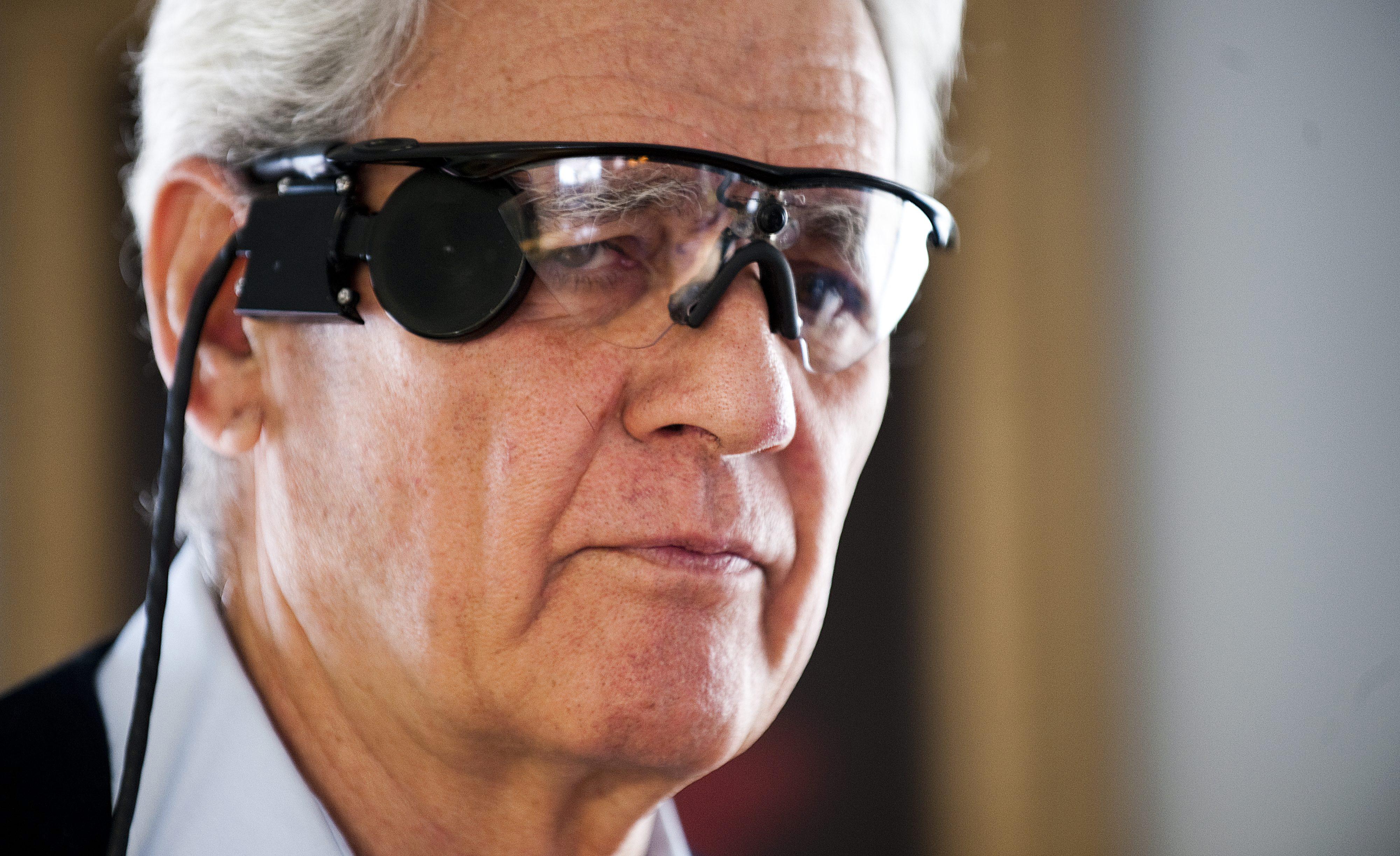We’re on our way to becoming cyborgs—part human, part machine. That, at least, is the jumping off point for a new report from the Brookings Institution. Earlier this year, in Riley v. California, the Supreme Court ruled that police officers may not search cellphones without a warrant because “modern cell phones … are now such a pervasive and insistent part of daily life that the proverbial visitor from Mars might conclude they were an important feature of human anatomy.” Brookings’ Benjamin Wittes and Jane Chong took that to the next logical step: What does the merge between man and machine mean for law and policy?
The report (which includes a lesson on the history of the concept of cyborgs) argues that “a process of cyborgization is taking place.” And while the definition of a cyborg has changed over time and is changing still, humans are increasingly both dependent on and enhanced by machines. Wittes and Chong quote several authors and thinkers, one of whom, Stephen Mann, inventor of the wearable computer, has defined the cyborg as a hybrid person, “whose physiological functioning is aided by or dependent upon a mechanical or electronic device. “ It is to this that we are moving, and this “cyborgization” will have—and, indeed, is having—serious consequences.
The authors point out that the distinction between substitution for something that’s missing and enhancement of something that’s normal (the former being seen as medically necessary, the latter as unfair) is increasingly blurred by cyborgization. As an example, they point to VSP Vision care, which will offer Google Glass subsidized frames and prescription lenses, making use of Google Glass somehow medically approved. The lines between “the embedded and external” are also increasingly blurred—a nonprosthetic assistance device can be as much a part of a person’s life, and indeed of that person, as a fake limb. And what happens if and when the divide between external and embedded disappears entirely (or, when Super Sad True Love Story becomes Feed).
And all of this raises questions—of how to regulate this technology that becomes so integral to who we are; of “the rights that should be afforded to people who engage in cyborgism that is seemingly simply recreational in nature”; and, perhaps above all, on the implications for surveillance. What, for example, are the implications for data collection when the data lives in you?
The authors of the study write that we are not yet full-grown cyborgs (actually, the adorably dub us “baby cyborgs”), and that the answers to these questions will change as we grow.
But the issue here isn’t just that these questions are going to increasingly come up and have consequences. It’s also that they are already coming up, and already do. Consider, for example, if the Riley v. California decision had gone the other way. If police could now search our cellphones without warrants. And then consider what would happen if, with that law still in effect, cellphones were to somehow become more a part of us than they already are. Would the police be able to search us without warrants, too? And let’s say the law took its time to be reversed, as laws often are.
That’s why we need to have discussions about these issues now. Baby cyborgs are people, too.
